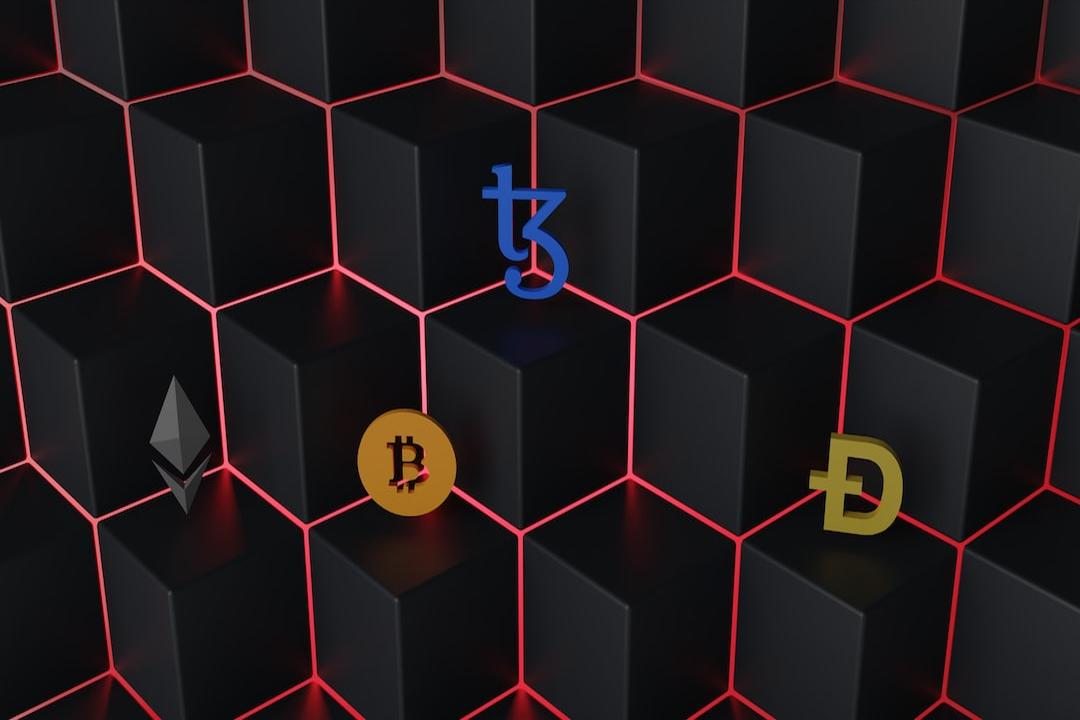This article is to inform you that on May 17th, there was a blockage of the Telegram domain within Tsinghua University, which caused widespread attention from the public concerned about legal freedoms and rights. Along with this, a letter from the Hsinchu City Government was leaked.
(Previous summary:
Will Taiwan block Telegram? Creative private rooms transfer the battle to TG, Ministry of Health and Welfare: Complete ban under 2 conditions
)
(Background supplement:
What is the public chain TON? In-depth analysis of technical features, token economics, integration of Telegram potential and popular projects
)
Recently, a creative private room called the “Taiwan version of the Nth room” used Telegram as a contact software to sell illegal adult content, which drew social condemnation and caught the attention of government agencies. The Ministry of Health and Welfare Protection Department even threatened to “block Telegram,” causing confusion among many internet users. Is it excessive to completely disable Telegram by stopping DNS resolution?
On May 17th, a Tsinghua University student suddenly posted a warning on Dcard, stating that Telegram had been blocked on the university network and attached a screenshot, causing concern among Taiwanese people following this issue.

Image source: Dcard Tsinghua University board
After the 17th, a document from the Hsinchu City Government was leaked online, stating that the foreign online platforms oursogo, japaninporm, and Telegram had published sexually explicit images in violation of laws protecting minors, including Article 8 of the Law for the Protection of Minors. The document requested multiple domestic DNS RPZ units to stop resolving the aforementioned three domains.


The requested units include the Ministry of Economic Affairs, the Ministry of Education, the Southern Taiwan Education Network Center, the Keelung Network Center, the Tsinghua University Computing Center, and other regional network centers and educational institutions, as well as major domestic ISPs.
Yu Li-heng, a cybersecurity engineer who pays attention to internet freedom in Taiwan, posted on his personal Facebook page to provide a complete overview of the incident. He stated that the reason for Tsinghua University’s blockage of Telegram was due to a letter from the Hsinchu City Government. The local government received a report and directly sent letters to various DNS RPZs in different regions, resulting in two levels of “cutting corners” without professional judgment from TWNIC before blocking.
Does stopping DNS resolution need to go through the courts?
According to TWNIC’s previous interpretation:
“TWNIC DNS RPZ has mandatory binding to prevent domestic users from accessing inappropriate or malicious domain names, but this mandatory measure must be based on a legal and legitimate process. Currently, TWNIC DNS RPZ policy models regulate two situations. Situation one is based on court judgments/decisions or administrative orders to remove actions based on laws and legal provisions. Situation two is based on domain names that have cybersecurity concerns and significant impact, and removal actions are based on the legal recognition of critical infrastructure obligations and legal provisions. Situation one requires review criteria designed from a legal perspective, and situation two requires review criteria designed from a technical perspective.”

Image source: TWNIC Blog
Regarding the legal practice of stopping DNS resolution, after discussing with several legal professionals, insiders stated that in earlier cases of domain blocking, the procedure was mostly carried out through court seizure proceedings. However, in the past 3 to 4 years, there has been a significant increase in cases where administrative agencies apply to TWNIC, and local agencies have directly sent letters to various educational network units and network centers. In some cases, personnel in these units have stopped DNS resolution based on “superior’s request” without receiving formal review and decision from TWNIC after receiving the application.
Currently, in Taiwan, not only TWNIC but also administrative agencies can block domains themselves, including the Ministry of Economic Affairs, the Ministry of Health and Welfare, and the National Police Agency.
A personal comment from a prosecutor stated that if administrative agencies rush to stop DNS resolution, it will continuously expand the interpretation scope of current blocking conditions, making it more ambiguous. This has also created difficulties in establishing a complete legal framework for judicial personnel to apply for seizure through the courts. Furthermore, not all personnel within the judicial field are familiar with domain blocking matters.
In April of this year, it was reported that the National Police Agency stopped resolving WordPress-related websites during a crackdown on fraud groups. This caused many users to feel angry and embarrassed. More details about the case can be found in the blog post by Hersey:
WordPress in Taiwan has become a fraudulent website?
Follow-up on WordPress being treated as a fraudulent website
Lu Ren, a professor of information management at Ming Chuan University, also criticized the hijacking of WordPress in Taiwan in a post:
Taiwan’s WordPress websites being hijacked, is the government asleep?

Related News
Telegram wallet disaster, Notcoin airdrop causing NOT overload! Bybit delays withdrawals and introduces compensation plan
What is the public chain TON? In-depth analysis of technical features, token economics, integration of Telegram potential, and compilation of popular projects


